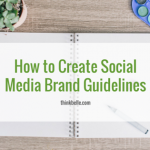
Fun fact: I not only had no desire to land a job in PR following college, but I had no idea what PR actually was. (I know what you’re thinking: I need to work on the ‘fun’ in my fun facts.)
My first job out of college was exactly what I thought I wanted to do with my career: work for a national news organization. However, working on a national news desk led me to form some very strong (very negative) opinions of publicists.
It was a learning exercise, but one I’m entirely grateful for, now that I’m on the other side of the email/phone – because it led me to be a better pitcher. Why? Because I learned how NOT to pitch before I ever wrote a pitch. Here are my 5 favorite lessons learned that can easily translate into pitch tips:
5 Pitch Tips (aka How Not to Drive the Media Crazy)
1. The best thing you can do is be friendly and helpful.
Most members of the media don’t understand your job. There were only a handful of times my job actually required me to work with publicists, and I still remember the most helpful publicist ever – and all she did was help me test out her client’s Skype an hour before the interview. Almost every other interaction I remember is of overly forceful publicists who were going to pitch to me over the phone whether I had the time to listen or not.
2. Timing is everything.
Carrying over from #1, timing is oh so important, especially if you’re pitching a deadline-focused outlet. At the outlet where I worked, there were 5+ newscasts every hour. That meant tight deadlines, quick turnarounds and breaking news turning stale very quickly. You may think your client’s connection to the breaking news from earlier in the week is still relevant – maybe for a longer lead outlet, but not for a news desk. You need to be pitching within the day – if not the hour. Also, while we’re talking about the time: if you call during a newscast (think top and bottom of the hour) you’re basically asking to make enemies.
3. Cold calling a national news desk? You’re probably talking to the wrong person.
I listened to hundreds of pitches in my 2.5 years on the desk. Not once was I the right person to talk to. Not once was I asked if I was the right person before I was given a pitch that usually took longer than three minutes to explain without a word from me (other than “I … uhh … I’m not …”). I understand publicists want to get their story out before they’re shut down, but it does no good if they’re talking to an assistant who doesn’t have the time to talk anyway.
4. Follow up calls suck.
Ok. This one is tricky, because I now understand the importance of follow up calls with some reporters who legitimately like to talk on the phone, or just haven’t had a chance to respond to your pitch. This one totally goes back to #3 – because there is nothing worse than someone calling to follow up with a pitch, even though they knew I wasn’t the right person. For this reason, I <3 Sidekick. I have a better idea of who may be interested in a pitch based on if they’ve opened it and how many times.
5. Keep it simple, stupid.
This is on every reporter’s list of PR pet peeves, and it’s so true. Internally, those working for big news organizations get hundreds of emails a day. Those who have their details listed in a PR database like Cision are innundated with internal email and external pitches. If you have to scroll down more than once on a pitch, it’s too long and too complicated. Keep it simple stupid, otherwise it’s getting deleted.
I firmly believe that some of the best “pitchers” are people who have spent time in the news media, because they understand the other side of the story, the love-hate relationship and the qualities of a great pitch.
Did I miss anything? Leave me a comment or Tweet me at @tara_parsell or @thinkbellecom!



